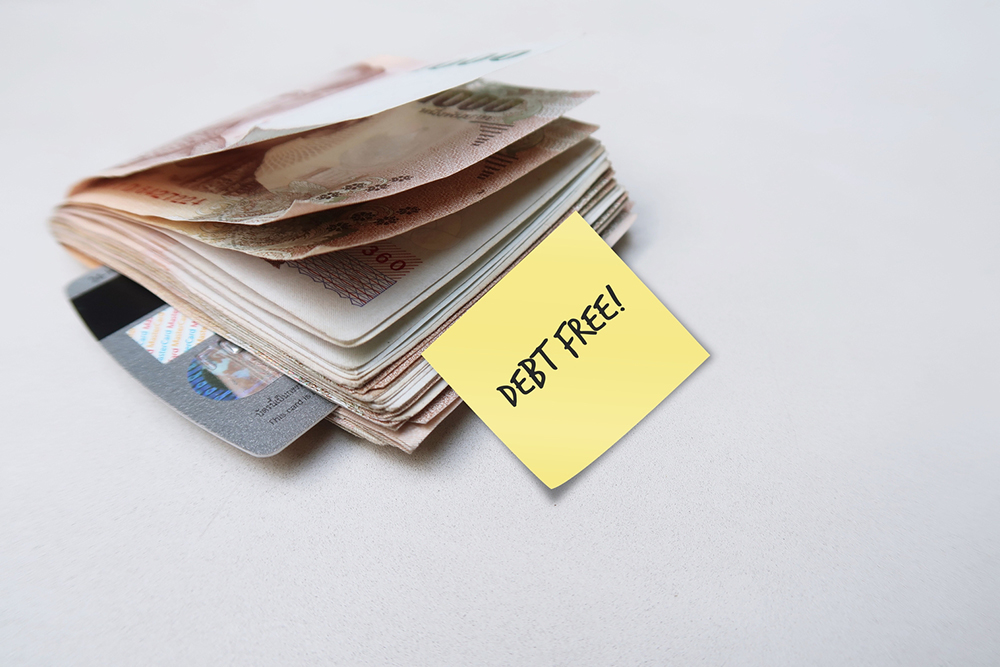9 Tips to Consider for Tackling Debt
People borrow money for various reasons, such as buying necessary assets, covering healthcare emergencies, or getting a higher education. The borrowed money, or debt , if not paid back in time , can become difficult to track and manage. Not just that, missed debt repayment can hurt borrowers’ credit scores, affecting their ability to seek loans in the future. So, making a detailed debt payoff plan and carefully handling repayment is important.
1. Check the total debt amount
To begin developing a debt payoff strategy, one must verify the total amount they need to repay. One must list all the sources of current debt, including those that need to be immediately repaid, like credit card bills, to avoid high interest charges.

2. Track expenditure
After checking the total debt amount, one must examine their current expenses, including monthly transportation, shopping, utilities, and food. After examining these expenses, one should look for a way to reduce unwanted expenses. For instance, shopping less, buying cheaper products, and cooking and eating at home instead of dining out can help one save money.
3. Make and follow a strict repayment plan
Budgeting and financial planning are the keys to addressing debt obligations. Whether one has credit card debt or a student loan to pay off, setting up a manageable repayment plan that can tackle all debts in a reasonable period can help one manage their finances and avoid increasing their debt burden.
4. Look for additional income sources
One of the best ways to tackle debt is to get an additional income source. For instance, one could take up freelance work or part-time jobs to supplement their monthly earnings. This is a common solution for tackling youth debt, which mainly consists of student loans or auto loans. Even side hustles like babysitting, dog walking, or driving for a ridesharing app could help one get more money to tackle such debt.
Alternatively, one can start selling personal belongings to get some money. Here, the things that one hasn’t used in a long time should be put up for sale. Such items could be old furniture, vehicles, or appliances one does not need. One can easily find online marketplaces today that allow users to list used things and connect with interested buyers. If online platforms do not work out, one can always organize a garage sale and invite neighbors to come and buy unwanted items. Using the money from the sale, one can begin repaying debt.
5. Consolidate debt
Debt consolidation is a strategy that involves seeking a new loan to pay off multiple debts. It can be a good way to simplify debt payoff, especially if one has good credit. Consolidation works best for credit card debts and personal loans. That said, this option can be expensive, as loans here come with high interest rates, which may increase the debt burden.
6. Use a balance transfer card
When dealing with high-interest debt, one could check if they qualify for a balance transfer card. It allows moving outstanding debt from a high-interest credit card to a new, low-interest card. This balance transfer could help one save money while paying off debt. Additionally, the card may offer 0% APR, which typically lasts a year or longer. At the end of the term, the interest may increase as per the card’s standard rate and apply to remaining balances. So, balance transfers should be combined with a plan to pay off debt before the 0% APR period ends. One should also note that this option may require borrowers to pay a balance transfer fee, typically 3–5% of the total amount moved to the card.
7. Consider credit counseling
One can consider consulting a non-profit credit counseling organization to find ways to pay off debt. Several credit counselors offer services on a sliding scale or provide free initial consultations. Some counselors may even negotiate with creditors to see if they will agree to reduce the interest rate, monthly payment amount, or other fees on debt. That said, one will eventually have to begin paying the credit counseling agency once a month while the organization pays the creditor on the borrower’s behalf.
8. Prioritise paying off debt in collections
Upon not paying a bill or debt in time, the company one owes can send the debt to collections, i.e., hire a debt collection agency to then recover the outstanding balance . While it is important to pay off all debt, one should prioritize the amount that has been transferred to collections. Making payments toward such accounts will minimize the impact on credit scores.
9. Ensure accountability
While tackling debt can seem challenging, breaking down debt repayment into small, achievable goals could help one stay on track. For instance, allocating an additional $50 toward debt payoff per paycheck will help reduce the overall financial burden. One can also set milestones to stay motivated, like paying off smaller debts first, say, within three months, before moving on to bigger debts.

